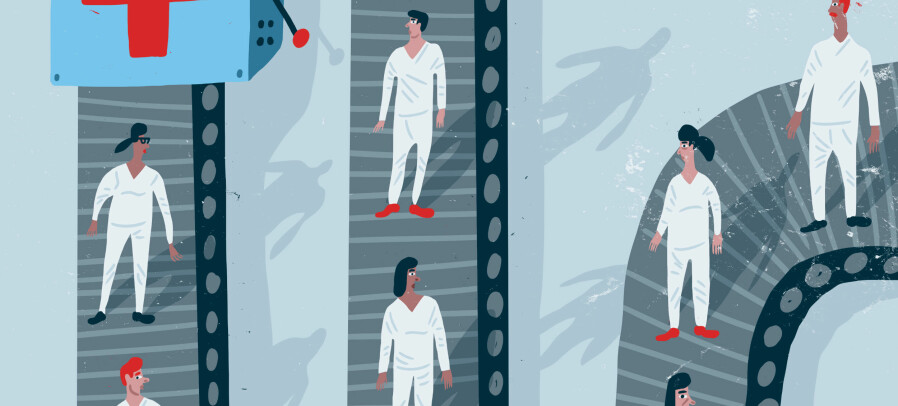Manpower
Why isn’t the unjust distribution of power a problem when the women are the ones with the power?
There are still far more boys on the shop floors than there are patriarchs in today’s society. Kjetil Nordengen, man and journalist in Universitas
In last week’s Universitas there is an article stating that women are dominating the student political leader positions. Decision-making bodies on both national and local levels are lead by people with double X-chromosomes. The Welfare Council’s executive committee is indeed consisting of five women and no men, a case that causes no concern with President Jenny Nygaard. Nor with anyone else, for that matter.
Let’s turn the first words in last week’s article around: «Men dominate student political leader positions on both national and local levels. -All natural, says the male leaders themselves.» That sounds like trouble. But in this case, the imbalance between the sexes makes good news. Why is that?
It is, of course, about the fact that men still dominate our society: They make the most money and they fill leader positions in society which women are excluded from – the infamous glass ceiling. But men are not dominating because they are superior in the educational system. In this field they are already losers, from primary school to master’s degree level. On doctor’s degree level there are marginally more men than women. For now.
The glass ceiling also affects the academy, and makes women underrepresented in the elite in this field, too. While some men still work to capacity to keep the glass ceilings roofed, the average student, family man and bum lags behind on several fields in society, such as unemployment, life duration, general health and education. We’re getting more disabled, sicker and dumber. A fact that women don’t benefit from either.
I believe, as the leader of NSU Anne Karine Nymoen points out, that the female dominance is an outcome of how women are superior in numbers when it comes to the academy. There are simply more women to choose from for leader positions, seeing that the student body in higher education consists of more than 60 per cent women. Because of this, female leaders will gradually be elected for leader positions.
One could object here and say that men who want power and leader positions find «real» positions out in the real world, and not in the transitory rule of party bosses at the educational institutions, and that there isn’t enough prestige in student politics. I don’t believe this is the case, and anyway, let’s stick to the principles: If we are to take these organizations influence – and equal rights for the sexes – seriously, we have to problematize the gender imbalance between the students’ representatives.
While a small part of the powerful men are clearly building glass ceilings that the women keep knocking their heads against, there are still far more boys on the shop floors than there are patriarchs in today’s society. And when the women are already in majority in academy, what needs to be done is to get more boys and men to enjoy themselves in the reading halls.
For the time being, there is no sudden need for affirmative action to get men into leader positions in student politics. But the case is symptomatic for what is, for the sake of provocation, called the feminizing of the educational system. The action of marginalizing young men from higher education does not remove glass ceilings. Nor differences in salaries.
I wish for more cases of indignant jeering from scorned, underrepresented men like myself. And I hope I can be taken seriously. It is not reactionary to fight for the scorned and underrepresented men, damn it. It’s avant-garde.

































